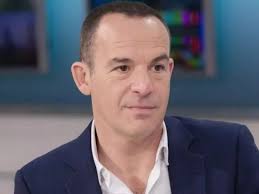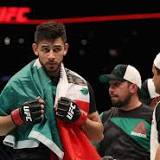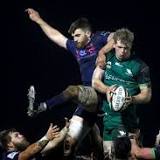'Drugs were everywhere': the rise and fall of the NBA's cocaine era

 View image in fullscreen
View image in fullscreen
‘Drugs were everywhere’: the rise and fall of the NBA’s cocaine era
Recreational drug use boomed in the 1980s and basketball was far from immune. The trend ended careers as the NBA clamped down
Micheal Ray Richardson was a brilliant player: a four-time NBA All-Star guard. He was also the first player banned for life by the league for drug use, something which was far more common during his playing days. Back in the 1980s, substances like cocaine were not only part of professional sports but also society and entertainment at large, and Richardson says talk about drugs was routine during what some still call the NBA’s cocaine era. “During warmups,” Richardson says, “guys on different teams would say, ‘Yo, man, I got what you’re looking for. Let’s get together when [the game] is over.’ And boom that’s how it got going.”
At the time, drugs were “everywhere – it was like a fad,” says Richardson, who also goes by the nickname Sugar. But in the NBA, it alienated many fans. So much so that to correct the problem, the NBA instituted a three-strike system, which led to Richardson’s 1986 banishment (all of which he discusses in his forthcoming memoir, Banned).
Today, aside from the 10ft basket and the five-on-five competition, the NBA does not resemble the league in the late 1970s and early 1980s. But when it comes to drugs, that change took time. For Richardson, who grew up modestly in the midwest and only got into drugs after succumbing to peer pressure while living in New York City and playing for the Knicks, drugs were not a part of his early life. Then they overtook him and led to a debilitating years-long addiction. But his story is far from unique. When David Stern took over as commissioner of the NBA in 1984, one of his top priorities, along with promoting the Magic Johnson-Larry Bird rivalry, was cleaning up the game. That meant suspensions and lifetime bans (Richardson was also the first player reinstated to the NBA, in 1988, but he never returned to the league).
Still, pro basketball in those days was littered with addiction and lost potential. Marvin “Bad News” Barnes is perhaps the poster child for drug issues. His biography, Bad News, details a life of drug abuse, which included hanging out with drug kingpins, derailing what could have been a Hall of Fame career. He went from averaging 24.1 points and 10.8 rebounds per game in 1975-76 in the ABA to 9.6 and 4.8 a season later in the NBA. Barnes was out of pro hoops by 1980 and, despite trying many times, never kicked his habit before passing away in 2014. But Barnes, too, is not an isolated case. In 1986, the same year Richardson was banned for life, Boston Celtics rookie Len Bias, died from a drug overdose at the age of 22 mere hours after being drafted. “He got ahold of some bad stuff,” Richardson says. “That was a sad moment. A wakeup call for everybody.”
 View image in fullscreen
View image in fullscreen
Also in 1986, All-Star John Drew was banned for life for violating the league’s substance abuse policy. That same year, Rockets guard John Lucas was waived by the team because his drug issues had become so bad. (Lucas later turned his life around, became an NBA coach, founded a rehabilitation center, which has helped save the lives of many athletes and even headed up a professional tennis team featuring Steffi Graf.)
In 1987, All-Star “Fast” Eddie Johnson was banned for drugs. Chris Washburn, a former No 3 pick, was banned in 1989. In 1991, former Sixth Man of the Year, Roy Tarpley, and promising rookie Richard Dumas were both sent packing. The list goes on. But it wasn’t just players. Coaches and executives were affected by substance abuse. Usually in the form of alcohol.
“When I was in the [Continental Basketball Association],” says Richardson, “my coach Bill Musselman – he used to get at that bar when the game was over and he would be red as a beat. He would be so damn drunk. But there were a lot of coaches who drunk their alcohol. Back then it was more accepted.”
In the NBA, drug abuse was so rampant in the 1980s (even Michael Jordan has talked about it) that teams were said to have hired private investigators to spy on their players, from Los Angeles Lakers All-Star Norm Nixon to Richardson when he was with the Golden State Warriors. Richardson believes his lifetime ban, along with Bias’s death and the other suspensions, finally forced players to confront their drug use. They knew real repercussions were around the corner, that the league was demanding better behavior. Still, the NBA, like all walks of life, has since had to deal with other examples, from alcohol abuse to prescription drug dependence.
Other leagues like the NFL and MLB have also had to deal with serious drug issues, from opioids to painkillers to steroids to cannabis use, which is legal in many US states now and which the NBA stopped testing for in 2021 (a fact that irks Richardson, who has been drug-free now for decades). And all sports are facing problems with gambling and gambling addictions. When it comes to the NBA, Richardson says, there were issues with heroin (Kareem Abdul-Jabbar even admitted to trying it once) and then crack. The only remedy was distance. “You’ve got to keep yourself out of those place,” Richardson says. “Where it won’t give you opportunities to do it. Keep yourself out of those environments.”
after newsletter promotion
Today, the NBA looks at substance abuse and drug addiction as part of a bigger picture, offering its players a multi-pronged attack that focuses on mental health. At a time when the US is suffering from fentanyl and opioid epidemics and other debilitating social issues, the NBA is working to educate its workforce about the perils of drug use and addiction as well as focusing on others issues that can affect one’s mental state. With annual salaries rising to as much as $60m-plus, there is a lot to be protected. Indeed, the league has come a long way over the years. From players like DeMar DeRozan, who just wrote a book on his mental health journey, to Hall of Famer Spencer Haywood speaking openly about his issues with substances.
“Even now,” says Richardson, “it’s not like it was back in the 80s when I was [playing]. Because now there’s the fentanyl. Now what they’re doing is mixing all the drugs with fentanyl and it only takes a little – because fentanyl will kill you.”
And if fans wish to take a quick glance at a list of recent NBA suspensions, they will not find many of the kind that the league suffered from decades ago. Rather, they will largely see the more garden variety on court fighting or run-ins with refs (though there are still some recent instances of substance abuse). Two people charged with continuing the improvement of the NBA from a social perspective include Jamila Wideman, a former WNBA player and current senior vice-president of player development in the NBA, and Dr Kensa Gunter, a psychologist and director of NBA and WNBA mind health. Both, especially compared to Richardson’s era, are doing an excellent job, given the outside factors and demands on players’ lives today, from social media to gambling pressures.
“One thing about alcohol and drugs,” says Richardson, “they do not discriminate.”
- NBA
- Drugs in sport
- Basketball
- US sports
- features


 United Kingdom
United Kingdom Argentina
Argentina  Australia
Australia  Austria
Austria  Brazil
Brazil  Canada
Canada  Germany
Germany  Ireland
Ireland  Italy
Italy  Malaysia
Malaysia  Mexico
Mexico  New Zealand
New Zealand  Poland
Poland  South Africa
South Africa  United States
United States 






















